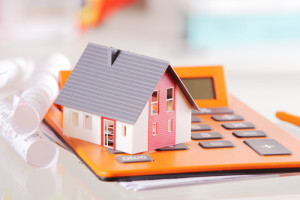 Buying a home is exciting. If you’re young, it gives you the sense of finally stepping into the adult world. If you’re at some other life change (marriage, starting a family, empty-nester) the idea of a larger (or smaller) space of your own gets those possibility juices flowing.
Buying a home is exciting. If you’re young, it gives you the sense of finally stepping into the adult world. If you’re at some other life change (marriage, starting a family, empty-nester) the idea of a larger (or smaller) space of your own gets those possibility juices flowing.
But … in the heady rush into new home ownership, the temptation to bite off more than you can chew financially is strong enough that potential homeowners ignore that niggling unsettled feeling, or even the warning bells clanging in their heads. Once the deal is done and move-in day is a dim memory, the reality of monthly expenses takes over.
Does that mean you shouldn’t buy a home? Of course not! What is means is that homeownership can change your lifestyle in ways that you may not anticipate. If you’re looking at buying a home, try incorporating those changes into your life beforehand to see if they are livable.
Higher monthly payments
For some buyers, the actual mortgage payment is less than they pay for rent. In fact, many would-be buyers consider this as the basis of their potential move into ownership, and marketers promote the idea as well. But, ownership requires more than just making the mortgage payment. Other monthly outgo includes:
- Insurance: Homeowner’s insurance is much more costly than renter’s insurance. If you own a single-family home, the cost of your coverage is based not on the home’s market value, but on the cost to rebuild it after a destructive event. If your home has special architectural details—a Victorian or Craftsman, for example—your insurance may be higher because replacing damaged detailing may require specialty products. If you live in a storm-damage area (hail, tornados, wind) or flood plain, you’ll need to cover those instances as well. Your insurance also includes coverage for your furnishings. When you more to a larger home, you have more furnishings.
- Private Mortgage Insurance: If your mortgage arrangement requires the payment of private mortgage insurance (you made a smaller than conventional downpayment or your credit is less than stellar, for instance), the amount of your monthly payment may be increased to pay PMI. Just so you know, PMI is not for your protection, it is for the lender’s protection. You’ll pay between $75 and $250 to cover your lender should you default on your mortgage.
- Association Dues: Condominium ownership nearly always requires payment of monthly or yearly association dues. These dues pay for exterior and building and pool maintenance, landscaping, liability coverage for community property and other responsibilities. In many communities, even single-family homes can require association dues to cover parks, playgrounds, pools and other shared spaces. Association dues can run into several hundred dollars each month.
- Property Taxes: Unlike renters, property owners pay the taxes used to operate cities, school districts and other municipalities. Your tax money maintains roads and pays for street-sweeping or snow removal, clearing of drainage systems, installing and maintaining street lamps, building and caring for parks and recreation facilities. In cases of newer construction, there may be special assessment taxes to cover new roads and sidewalks, traffic lights, and other new installation required by the city. Typically, special assessments end after a certain number of years.
- Local services: Often, services such as trash, water and sewerage are covered in a renter’s monthly payment. Homeowners typically pay for these services individually, so their cost must be included into the monthly outgo.
- Maintenance: An owner is responsible for maintaining the property. That means the costs to replace light bulbs and repair dripping faucets or plugged toilets falls to the owner.
Have a plan
Before purchasing a home in a given area, find out an average of these other costs. To figure out interest and PMI, check out a mortgage calculator. For property taxes, search the local county records or ask your real estate agent to find out the prior year’s assessment. Add the monthly extra for all of these items to the potential mortgage payment. If it is more than you pay for rent, try living for three to six months paying the difference into a savings account that you do not access.
You may be willing to make sacrifices to afford the home of your dreams, but remember that you need to live with those sacrifices for a very long time. Giving up cable, not eating out and delaying buying new clothes seems doable in the first few months, but eventually, you may tire of the restrictions to your lifestyle. That’s why it is important to know before you buy a home how much monthly outgo fits into your lifestyle.
A real estate professional knows how to help you gather this information. We want you to be happy in your new home. After all, we want you to recommend us to others, so if we don’t help you determine the best situation for you, we only hurt ourselves.
Compliments of Virtual Results


Leave a Reply